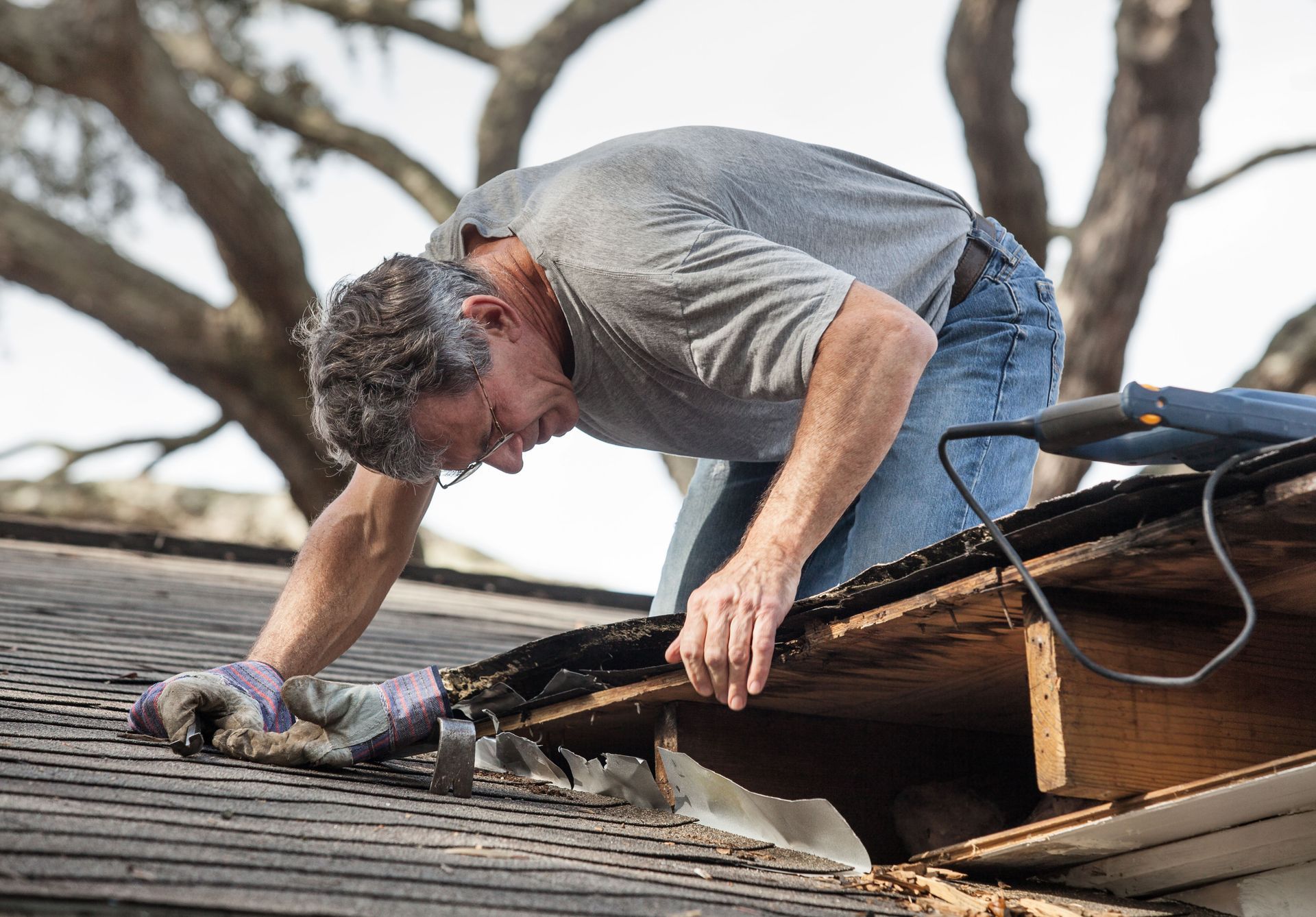5 Key Considerations When Comparing Local Roofers
When embarking on a roofing project, whether it's a minor repair or a complete roof replacement, choosing the right local roofer is crucial for a successful outcome. According to Service Titan, there are 96,474 roofing contractors registered in the United States, marking a 0.6% increase from the previous year. There's a plethora of choices when it comes to finding the right roofer, but also a significant challenge to ensure your selection meets your specific needs. This article delves into key considerations to guide you when comparing local roofers, ensuring that you can confidently make an informed decision tailored to your project's requirements.
Access to information regarding roofing contractors online has grown exponentially, allowing homeowners to extensively research potential hires before making a decision. However, sifting through the vast amount of information can be overwhelming without a structured approach. This is where understanding and prioritizing key selection criteria come into play, providing a roadmap for evaluating roofing contractors effectively.
These considerations encompass many facets, including licensing, experience, reputation, cost, warranties, and local knowledge. Each aspect plays a crucial role in the overall quality, cost-effectiveness, and longevity of your roofing project. Ultimately, the goal is to partner with a roofer who combines expertise and reliability with dedication to customer satisfaction, ensuring a smooth process from inception to completion.
1. Licensing and Insurance
Licensing and insurance verification are the first critical steps in choosing a roofing contractor. With thousands of roofers offering their services, confirming their legitimacy through valid licensing and insurance is essential to protect both your investment and your home. This process typically involves checking with local government bodies or online platforms that maintain records of certified roofers.
The importance of licensing cannot be overstated, as it signifies a roofer's compliance with local building standards and regulations. Holding a valid license is often a prerequisite for accessing roofing work opportunities and serves as a marker of competence. Moreover, licensing is a testament to the roofer's dedication to upholding industry standards and ongoing professional development.
Insurance coverage is another non-negotiable when selecting a roofer, offering essential protection against accidents and damages. Commonly required types of insurance include general liability and workers’ compensation, both of which safeguard homeowners from potential legal and financial liabilities. Recognizing common red flags, such as reluctance to provide insurance documents or having insufficient coverage, can prevent costly mistakes.
2. Experience and Expertise
Experience is a defining element of a roofer's ability to deliver exceptional service, often reflected in the number of years a company has been operating. Firms with a long-standing history not only demonstrate sustained success but also possess practical knowledge that can be invaluable for complex projects. Seasoned roofers tend to have established processes that improve efficiency and project outcomes.
Expertise in specialized roofing styles or materials can greatly impact the quality of the final product. Selecting a roofer with specific knowledge of the roofing system you intend to install can ensure techniques are correctly applied. Moreover, roofers who regularly update their skills and knowledge often stay ahead of industry trends, offering contemporary solutions to roofing challenges.
When evaluating a roofer's experience, reviewing portfolios of past work provides insight into the level of craftsmanship and scope of projects handled. Assessing portfolios can reveal a roofer's strengths and potential areas of improvement, aligning with your project's specific needs. Complementary to portfolios, industry accreditations from recognized organizations further verify a roofer's qualifications and commitment to excellence.
3. Reputation and References
A roofer's reputation serves as a powerful indicator of their reliability and customer satisfaction track record. Today's digital era enables prospective clients to gauge reputation effectively through online reviews and ratings on platforms like Google and Better Business Bureau. Carefully analyzing these reviews can highlight consistent patterns in service quality and potential areas of concern.
In addition to online reviews, testimonials, and feedback from previous clients provide valuable firsthand insights into a roofer's operations. Direct feedback emphasizes not only the quality of work but also the customer's overall experience from contract signing to project completion. Leveraging both online and client-based responses creates a broader perspective on how well a roofer meets expectations.
Personal recommendations and word-of-mouth endorsements offer an additional layer of confidence when selecting a roofing contractor. They often reflect communal trust and reliability in a roofer's services within your local area. Furthermore, how a roofer addresses negative feedback can significantly indicate their commitment to customer service and problem resolution.
4. Cost and Financing Options
Financial considerations are pivotal in determining the feasibility and scope of a roofing project. Transparent pricing, characterized by detailed and easy-to-understand quotes, is essential in avoiding surprise expenses. Homeowners should seek comprehensive estimates covering both material and labor costs without concealed fees, fostering financial peace of mind and trust in the contractor.
When comparing estimates from different roofers, it's crucial to evaluate all aspects of the proposed work, ensuring an apples-to-apples comparison. Differences in pricing can often be attributed to varying levels of materials, workmanship quality, and company reputation. Engaging in thorough discussions with prospective roofers can elicit detailed justifications for cost discrepancies.
Understanding available financing options is vital, especially for larger projects that might require substantial investments. Many roofers offer financial solutions tailored to diverse budgets, allowing homeowners to proceed with necessary renovations without immediate financial burden. Moreover, considering long-term costs in terms of maintenance and energy efficiency can further inform your decision-making process, balancing immediate affordability against future savings and impact.
5. Warranty and Service Guarantees
Warranties are a key element of a roofing service agreement, assuring that your investment is protected against unexpected issues. Typically offered in two forms—manufacturer warranties and workmanship warranties—each type has specific scopes and lengths. Manufacturer warranties usually cover defects in roofing materials, while workmanship warranties ensure the quality of the installation process.
Careful examination of warranty duration and coverage is crucial to understanding what protections are afforded and the time frame for claims. Longer warranties often indicate the roofer's confidence in their materials and craftsmanship, adding a layer of security for the homeowner. Conversely, limited warranties may suggest an underlying uncertainty about product or service longevity.
The process for making a warranty claim should be clearly communicated, minimizing potential frustrations and delays in addressing roofing problems. A roofer's responsiveness to warranty claim processes reflects their commitment to quality assurance and customer satisfaction. Additionally, after-sales support, such as routine inspections and maintenance services, can significantly extend the life of your roofing system.
Selecting the right local roofer involves several critical considerations, ranging from licensing and insurance to experience, reputation, and localized knowledge. Each of these factors contributes to the overall success and longevity of your roofing project, ensuring that you're making a decision that aligns with both financial and quality expectations. As the roofing industry grows, approaching these considerations thoughtfully can safeguard your investment and enhance your home's value.
By prioritizing a comprehensive evaluation of potential contractors through diligent research and inquiry, you can enhance the probability of a satisfactory roofing outcome. The outlined factors not only highlight essential criteria for selection but also equip homeowners with the insights necessary for making informed decisions. In the end, the collaborative result is a roofing project that harmonizes aesthetics, functionality, safety, and cost-effectiveness.
Taking the time to evaluate these key considerations will help mitigate risks and ensure a smooth experience from project conception through completion. By doing so, you can look forward to both a reliable roofing system and the peace of mind that comes from working with a trustworthy local professional. For local roofers you can trust, contact us today at Regan Roofing, Inc.





Share On: